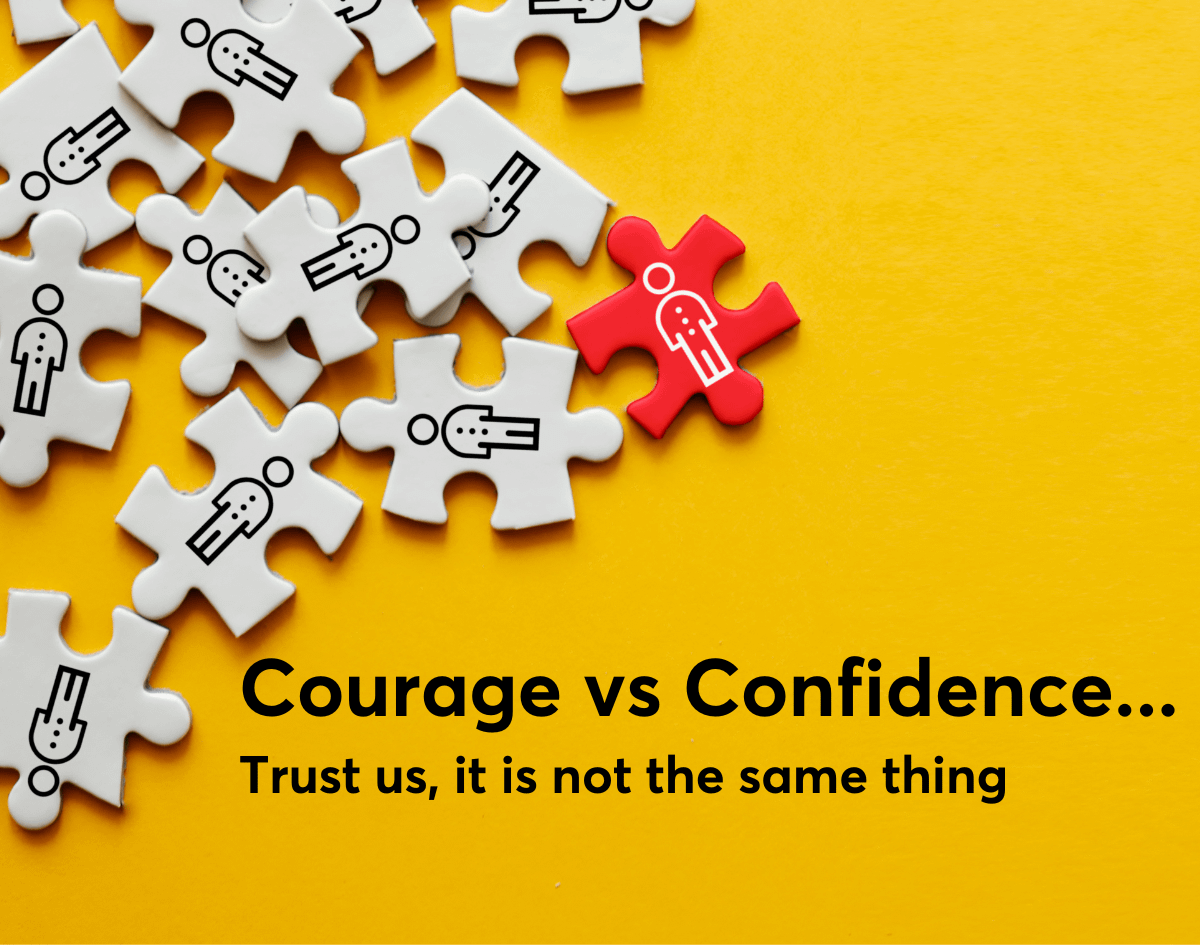-
What we doPersonal development
- Accelerating your impact
- Leadership for young people
- Navigating transitions
- Boosting collaboration
- All programmes
-
Social campaignsSocial campaigns
Taking a stand on social issues. Join us in investing for a better future
Read moreCurrent campaignsRelated -
ImpactEvidence
-
AboutWho we areLocations
David O’Connor
/
28 June 2023
Courageousness and confidence are not one in the same. There's a good reason why.
Must all leaders must possess confidence if they are to be courageous? Not necessarily.

Courage is the resistance to fear. It's the bold and brave-hearted act of standing up for what you believe in. It's deeply heard in the voices shouting for real change. And, it’s also the ever-connected feeling to one's inner confidence - a trait which many leaders possess. But does this mean all leaders must possess confidence if they are to be courageous? Not necessarily.
Leaders are inherently associated with being confident, and how could they not be? It’s their job to not only lead others but to believe in their own ability to do as much. But this confidence doesn’t always correlate directly to impactful, resourceful, and good leadership for others – it needs to be driven by something much greater and powerful if they want to make real, long-lasting impact: Courage.
There’s a principle within leadership that we incorporate into our programmes as a way to help people better understand their impact on others; the act of balancing courage and humility. Interestingly, a lot of people don’t associate themselves with being a leader, it’s imposter syndrome in action. They lack the confidence that comes with knowing exactly why they are where they are – but it’s crucial that they do, because only then can they step into the mindset required for courageousness. That’s where the real stuff happens.
When a leader is confident, they have an innate sense of self-belief; they say what they think, and they aren’t afraid to take well-calculated risks. But this starts and ends with the individual. When a leader shows courageousness, on the other hand, they’re extending this sense of self-belief far beyond themselves.
So what does courageous leadership actually look like? It’s allowing yourself to be vulnerable in order to push through challenges in the face of the unknown. It’s adapting to change, however difficult, to produce the best outcomes for your team, and beyond. It’s diving into purposeful conversations many of us try to avoid because they may hold unknown outcomes, while also understanding how these purpose-driven conversations will positively challenge you, and those around you. It’s the true authentic art of role-modelling all of these qualities to others, because by doing this, you’re helping others to do the same.
Acting with courage is a trait any leader can and should practice. Only then can they really step outside of their comfort zone, their role, their organization and start to Lead Beyond Authority, influencing people beyond their direct circle of control in a positive way.
In its essence, courage requires the self-awareness of knowing your power, and using that for the benefit of others – not yourself. And interestingly when you break it all down, perhaps courage isn’t always the loudest lion, or the shouting advocate, or the bold, brave-hearted gesture. Sometimes, it’s the quiet voice that enables others to step up themselves to make noise for the better.

